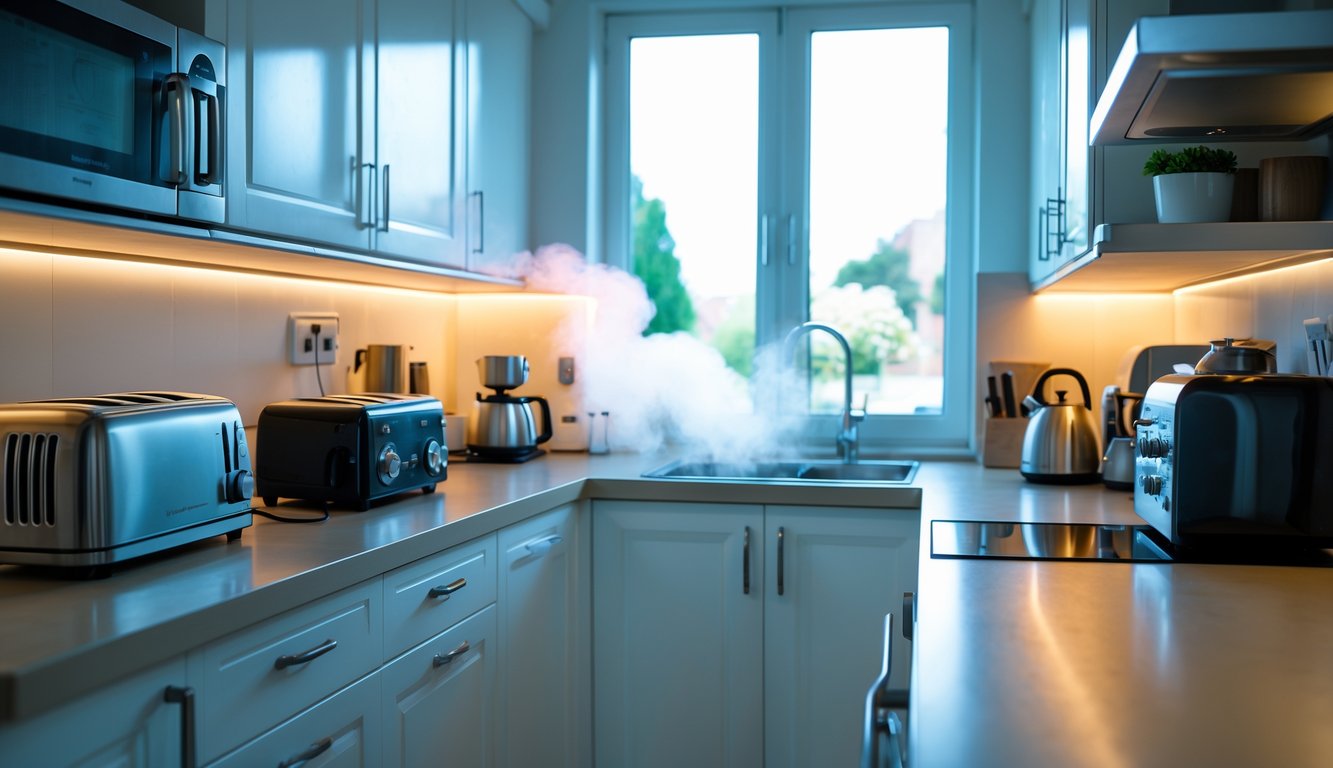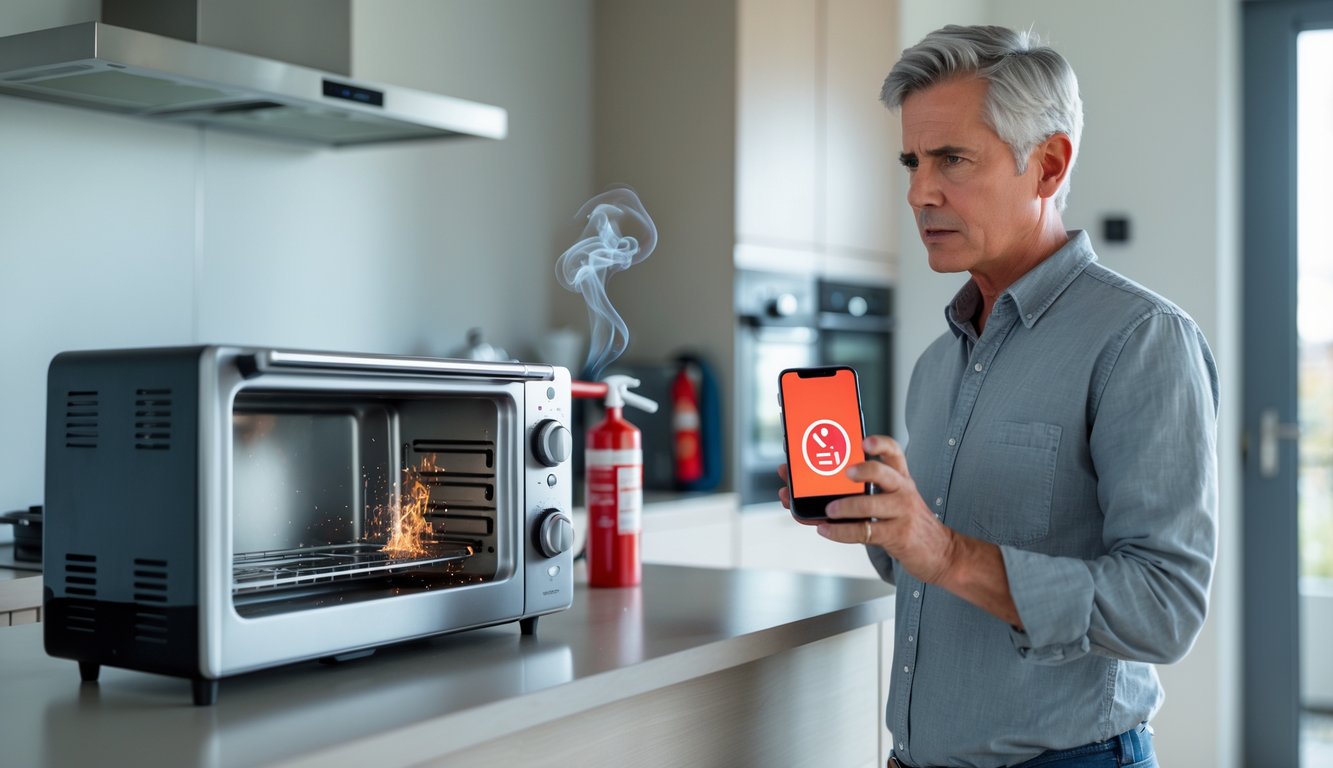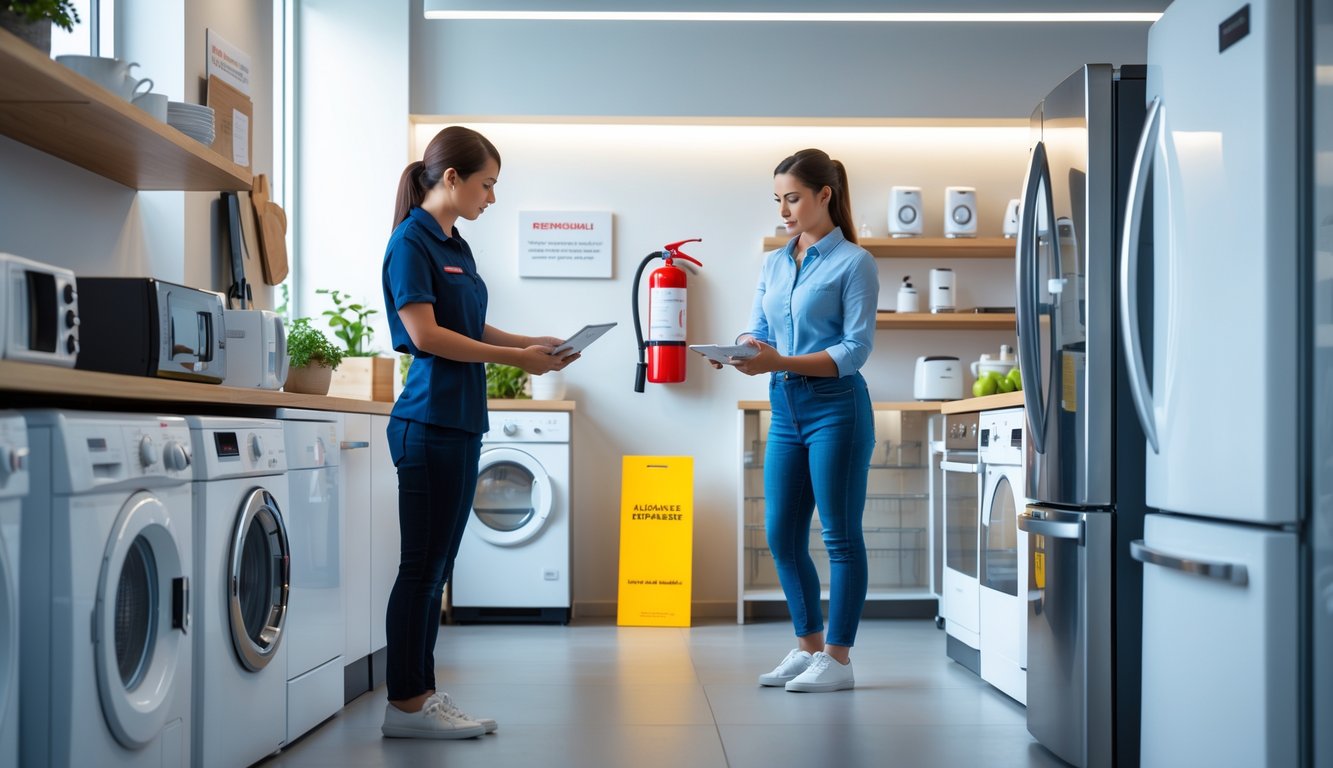
Impact of Fire Hazards: Real-Life Cases

Every time I walk past my oven, I wonder if it’s going to turn on me. Recalls keep piling up, and it’s not just numbers—there’s real fallout: burns, insurance nightmares, and, yeah, sometimes people or pets get hurt or worse.
Reported Injuries and Minor Injuries
Most reports skip over “minor” burns like they don’t matter. That’s ridiculous. In 2021, over 900 injuries from home electrical fires in the U.S.—a lot listed as “minor,” but that means ER bills, missed work, and a bunch of angry posts about never buying from Brand X again. U.S. Fire Administration says so. They don’t even count every blister or singed eyebrow—there are just too many. And honestly, the stress after? Nobody warns you. Insurance argues about what “minor” means (hint: singed hair doesn’t count), but try cooking dinner with a fresh scar and tell me it’s minor.
Property Damage and Pet Deaths
If it can burn, it will. One minute it’s a screaming smoke alarm, next your couch is toast, and your cat’s gone. Over $1.2 billion in property loss from home electrical fires in 2021—not exaggerating. That range you trusted for years? Gone, because of one busted relay.
And pets? Insurance doesn’t care. I’ve heard so many stories—dogs lost to smoke, cats vanished, just an empty collar left behind. No recall covers heartbreak or handmade stuff you can’t replace. My neighbor’s two dogs survived, but now she unplugs everything before bed. Every single night.
Lessons from Recalled Ranges
Those recalled LG and other electric stoves? Over half a million units so risky the Consumer Product Safety Commission forced a recall. The “fix” is supposed to be free, but you lose work hours, juggle your whole kitchen, maybe live off microwave meals for weeks. No one covers rent if your stove’s out.
A repair tech told me about a Gree Electric unit that shorted out mid-cycle—he barely escaped before the curtains caught. You won’t see that in the glossy brochures, just in recall PDFs and buried news. Recalls are basically the fire department’s “it’s not just you” memo, but every email just ramps up the anxiety. Best advice? Check your model number, then check again. If it’s on the list, don’t wait. Someone in California got sent to jail for ignoring dehumidifier fire recalls. Who keeps a lawyer handy for kitchen fires? Not me.
The Role of Appliance Stores and Retailers

Honestly, people act like appliances police themselves, but it’s the stores and warehouses actually dealing with the mess—returns, recalls, warranty slips nobody reads. They see which models disappear off shelves, and when three people bring in the same scorched oven, they know before anyone else.
Appliance Recall Policies at Costco and Best Buy
Here’s what bugs me—try getting a real answer from Costco when your fridge sounds like it’s dying and a recall pops up online. Costco says refunds or swaps are routine, but sometimes their info lags behind the manufacturer’s. I called once and the advice I got flat-out contradicted LG’s recall.
Best Buy? Could go either way. Sometimes the blue shirts read scripts, sometimes you get a form that leads to more forms. Their system does flag recalled stuff, but I’ve spotted units in clearance aisles that should’ve been pulled years ago. And don’t toss your receipt—without that fading slip, you’re out of luck for easy returns.
Both stores will point you to third-party recall alerts—usually just links to dangerous appliance lists—but post-sale emails end up in spam, and who checks that? Not me, not anyone I know… except maybe my brother’s neighbor, who’s a little too careful.
Returns and Exchanges at Home Depot and Lowe’s
Alright, so here’s the thing: Home Depot looks all streamlined and “we’ve got this” until you actually need something more complicated than a pack of screws. Those orange-apron folks? They just stick to whatever’s taped up at the counter, but then you ask about your scorched stove and suddenly it’s like, “Uhh, let me check with my manager.” Documentation is king, but honestly, every location seems to invent new rules for appliances—sometimes it’s like a secret handshake, sometimes it’s just bureaucracy for the sake of it.
Lowe’s? Just walk in and look like you haven’t slept in three days. Mention “fire hazard recall,” and the staff does this weirdly calm nod—like, oh, another one. They’ll usually call the manufacturer hotline before saying yes or no, and sometimes (not always!) they’ll offer you a loaner if your model made the recall list. But don’t bother phoning ahead; it never helps.
Don’t expect the same process if you’re dealing with a recall versus just regretting your purchase. Sometimes it’s a whole different dance. And if your appliance is ancient? Good luck—even if the recall came out last week, you might hear, “Sorry, too old.” What’s wild is Home Depot sometimes wants you to drag the whole oven in, while Lowe’s just asks for a photo and the serial number. Consistency? Never heard of her.
Collaborations With Manufacturers During Recalls
Nobody brags about this, but behind the scenes, stores like Costco and Best Buy get smacked with manufacturer recall alerts all the time. Supposedly, manufacturers are supposed to tell retailers ASAP and yank floor models, but honestly, half the time the fire marshal calls first. I’ve literally watched employees scramble to pull a wall of toasters after some cryptic voicemail.
“Collaboration” just means databases get updated and the manufacturer’s hotline starts blowing up. Sometimes LG or GE techs show up at Lowe’s and explain the risks (no, your dryer probably won’t explode, but maybe don’t leave it running overnight). Retailers add pop-up warnings at checkout so your old order gets flagged, but it’s all very patchwork.
If you bothered to register your oven, you might get a call from a manufacturer “outreach team.” Otherwise, you’ll probably only find out when a bored Home Depot cashier offhandedly tells you not to use your range anymore. By then, your dinner plans are toast and you’re hunting for your insurance info.